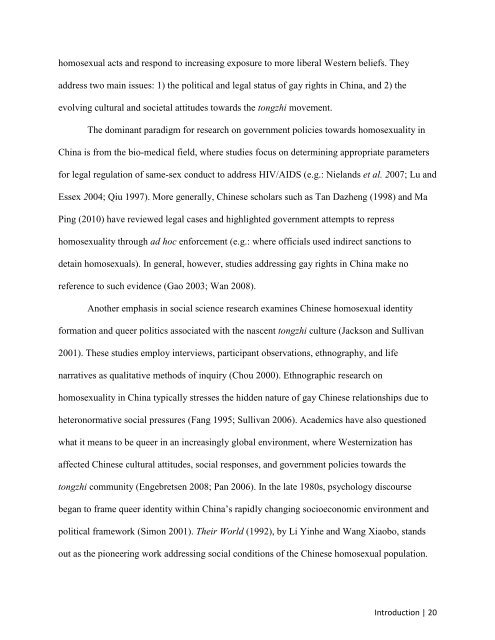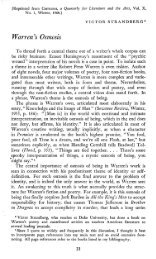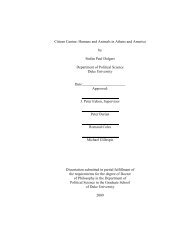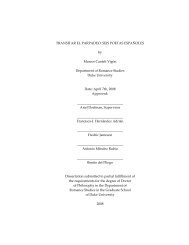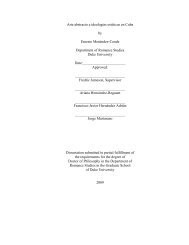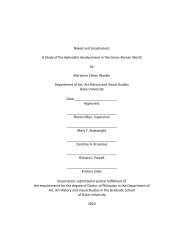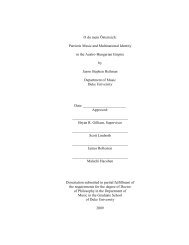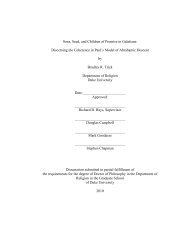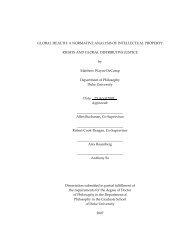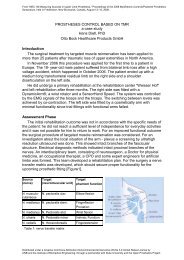View/Open - DukeSpace - Duke University
View/Open - DukeSpace - Duke University
View/Open - DukeSpace - Duke University
You also want an ePaper? Increase the reach of your titles
YUMPU automatically turns print PDFs into web optimized ePapers that Google loves.
homosexual acts and respond to increasing exposure to more liberal Western beliefs. They<br />
address two main issues: 1) the political and legal status of gay rights in China, and 2) the<br />
evolving cultural and societal attitudes towards the tongzhi movement.<br />
The dominant paradigm for research on government policies towards homosexuality in<br />
China is from the bio-medical field, where studies focus on determining appropriate parameters<br />
for legal regulation of same-sex conduct to address HIV/AIDS (e.g.: Nielands et al. 2007; Lu and<br />
Essex 2004; Qiu 1997). More generally, Chinese scholars such as Tan Dazheng (1998) and Ma<br />
Ping (2010) have reviewed legal cases and highlighted government attempts to repress<br />
homosexuality through ad hoc enforcement (e.g.: where officials used indirect sanctions to<br />
detain homosexuals). In general, however, studies addressing gay rights in China make no<br />
reference to such evidence (Gao 2003; Wan 2008).<br />
Another emphasis in social science research examines Chinese homosexual identity<br />
formation and queer politics associated with the nascent tongzhi culture (Jackson and Sullivan<br />
2001). These studies employ interviews, participant observations, ethnography, and life<br />
narratives as qualitative methods of inquiry (Chou 2000). Ethnographic research on<br />
homosexuality in China typically stresses the hidden nature of gay Chinese relationships due to<br />
heteronormative social pressures (Fang 1995; Sullivan 2006). Academics have also questioned<br />
what it means to be queer in an increasingly global environment, where Westernization has<br />
affected Chinese cultural attitudes, social responses, and government policies towards the<br />
tongzhi community (Engebretsen 2008; Pan 2006). In the late 1980s, psychology discourse<br />
began to frame queer identity within China’s rapidly changing socioeconomic environment and<br />
political framework (Simon 2001). Their World (1992), by Li Yinhe and Wang Xiaobo, stands<br />
out as the pioneering work addressing social conditions of the Chinese homosexual population.<br />
Introduction | 20


